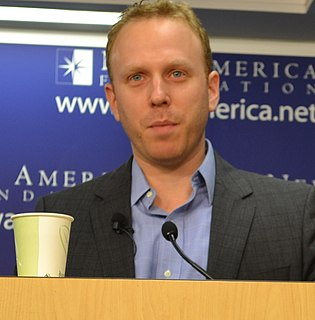A Quote by Flannery O'Connor
One of the awful things about writing when you are a Christian is that for you the ultimate reality is the Incarnation, the present reality is the Incarnation, and nobody believes in the Incarnation; that is, nobody in your audience. My audience are the people who think God is dead. At least these are the people I am conscious of writing for.
Related Quotes
If God really became incarnate, and if His Incarnation can with justice compel man to change his life,then we have no alternative but to conceive of this Incarnation as something which is still present and which will remain present for all future time. ... What happens in the liturgical celebration of the Eucharist is something for which all religions of mankind have exressed longing, dimly sensed was coming, and as a rule even prefigured- the physical presence of the divine Logos made man, and the presence of his sacrificial death, in the midst of the congregation celebrating the mysteries.
The true makes of history are the spiritual men whom the world knew not, the unregarded agents of the creative action of the Spirit. The supreme instance of this-the key to the Christian understanding of history-is to be found in the Incarnation- the presence of the maker of the world in the world unknown to the world. ... The Incarnation is itself in a sense the divine fruit of history-of the fullness of time-and it finds its extension and completion in the historic life of the Church.
In anything really, it's finding the reality. You can't be 'real,' but you can create a reality. And that created reality is what the audience believes in. And that's essential. Because if the audience doesn't believe that, they're never going to trust you. And if they don't trust you, you can't lead them up the mountain.
We all return. It is this certainty that gives meaning to life and it does not make the slightest difference whether or not in a later incarnation we remember the former life. What counts is not the individual and his comfort, but the great aspiration to the perfect and the pure which goes on in each incarnation.
The subjects in my work appear as unidentified ghosts that can't be said to be of this world. I've decided to call them incarnations. In various religions, myths, and legends, the word "incarnation" refers to the birth or emergence of transcendent beings in the form of humans or other bodies. If "incarnation" denotes the appearance of an abstract being in some concrete form, in a gut ceremony, a shaman could be considered an incarnation of our desires, hopes, and sorrows. The incarnations that appear in my work are always new and I meet them for the first time by drawing them.
Writing that flirts with incoherence can just as readily flounder as writing characterized by simplicity and composure. There is no reliable formula for originality, and strategies that are distinguished as innovative in their first incarnation can quickly become stale in the hands of lesser artists.





































